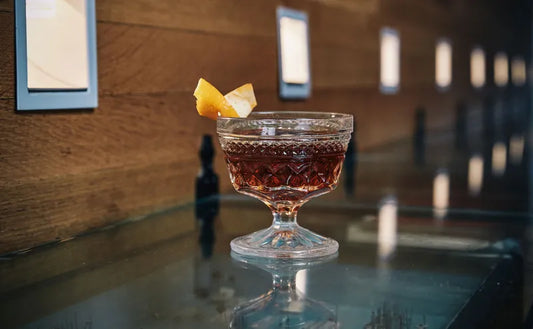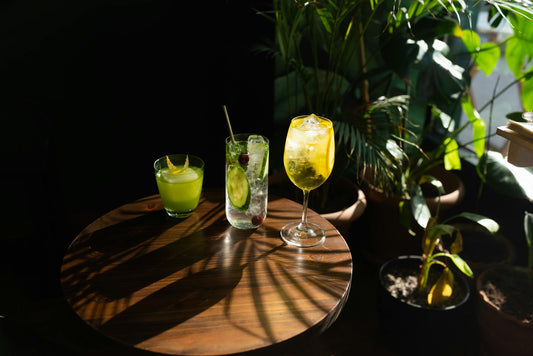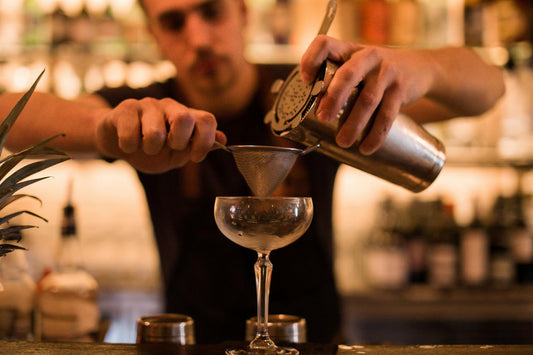Elderflower Gin Fizz: Refreshing Spring Cocktail Recipe
SWEET to SOUR
(1-10)
STRENGTH
(1-10)
CALORIES
STANDARD
DRINKS
Note: these values are approximate and may vary dependent on the ingredients and brands you use.
More information...
The Elderflower Gin Fizz is a delightful cocktail that embodies the essence of spring and summer with its refreshing and floral notes. This drink is a perfect blend of gin, elderflower liqueur, and fresh lemon juice, topped off with a splash of soda water, creating a fizzy and invigorating experience. The use of Hayman's London Dry Gin, known for its crisp and juniper-forward profile, provides a solid foundation for the cocktail, while the elderflower liqueur adds a sweet, floral complexity that elevates the drink to a new level of sophistication.
To prepare this cocktail, one must first select a Fizz or Highball glass, ideally pre-chilled to enhance the refreshing nature of the drink. The preparation begins with a simple yet effective method: combining the gin, elderflower liqueur, and freshly squeezed lemon juice in a shaker filled with ice. Shaking these ingredients not only chills them but also allows the flavors to meld beautifully. After a vigorous shake, the mixture is fine strained into the chilled glass, ensuring a smooth sip without any ice shards interrupting the experience. The final touch is a garnish of a lemon slice and a bouquet of mint sprigs, which not only adds visual appeal but also infuses the drink with aromatic freshness.
With an alcohol content of 15.85% by volume, the Elderflower Gin Fizz is a moderate drink, making it suitable for various occasions, from casual gatherings to more formal events. Each serving contains approximately 180 calories, which is relatively low for a cocktail, allowing one to indulge without too much guilt. The drink is categorized as having a sweet to dry-sour taste profile, striking a perfect balance that appeals to a wide range of palates. The sweetness from the elderflower liqueur is beautifully countered by the tartness of the lemon juice, creating a harmonious blend that is both refreshing and satisfying.
What makes the Elderflower Gin Fizz particularly interesting is its versatility. It can be enjoyed as a pre-dinner aperitif, stimulating the appetite with its bright flavors, or as a post-dinner refreshment, cleansing the palate after a rich meal. The floral notes of elderflower evoke images of blooming gardens and sunny afternoons, making it an ideal choice for outdoor gatherings or garden parties.
Moreover, the cocktail's aesthetic appeal cannot be overlooked. The vibrant colors of the lemon and the fresh green of the mint create a visually stunning presentation that is sure to impress guests. The Elderflower Gin Fizz is not just a drink; it is an experience that engages all the senses. The aroma of the mint, the effervescence of the soda, and the refreshing taste all come together to create a moment of joy.
In conclusion, the Elderflower Gin Fizz is a cocktail that captures the spirit of celebration and the beauty of nature. Its combination of flavors, moderate alcohol content, and refreshing qualities make it a favorite among cocktail enthusiasts. Whether you are sipping it on a warm summer day or serving it at a festive gathering, this drink is sure to bring a touch of elegance and delight to any occasion.



